ChemistryProgram
School of Science

Program Overview
 AWARD
AWARD
B.Sc. (School of Science)
 DURATION
DURATION
4Y
 SCHOOL(S)
SCHOOL(S)
School of Science
 Focus of Study
Focus of Study
Nanotechnology, Biological Chemistry, Chemical Synthesis and Catalysis
Chemistry Program
School of Science
Program Introduction
The Chemistry Program at Nagoya University’s G30 International Program offers world-class education through the School of Science and the School of Engineering. As one of Japan’s premier research institutions in chemistry, Nagoya University has produced many of the country’s leading chemists. Notably, Emeritus Professor Ryoji Noyori received the Nobel Prize in Chemistry for his pioneering work in organic reaction chemistry—the first recipient in the field in the 21st century. In addition, alumnus Professor Osamu Shimomura was awarded the Nobel Prize for his discovery of green fluorescent protein. The Chemistry Program curriculum is carefully designed to cultivate both theoretical understanding and experimental expertise through interactive lectures, hands-on workshops, seminars, and laboratory work. The program provides access to cutting-edge research facilities and a dynamic learning environment. Below, we highlight the distinctive features and opportunities of the Chemistry Program at the School of Science.
Course Highlights
The Chemistry Program at the School of Science is internationally recognized for excellence in both fundamental and applied research. It actively contributes to advancements in diverse fields such as engineering, agriculture, pharmacy, and medicine. During the first three years, students study foundational subjects such as Basic Chemistry, Organic Chemistry, Inorganic Chemistry, Analytical Chemistry, and Physical Chemistry. Students will explore a wide range of topics, including the design and synthesis of novel compounds, investigation of their structures and properties, biomolecular structures and reaction mechanisms, and the development of bioactive substances. As students progress, they transition from foundational chemistry courses to specialized topics, preparing them for independent research in their final year. In the fourth year, students join research groups and engage in hands-on laboratory work as part of their graduation thesis project. If you’re passionate about chemistry and excited by the prospect of contributing to groundbreaking research, this program might be the perfect fit for you!
Why Nagoya University’s G30 Chemistry Program – School of Science?
- Notable academic history, having 2 Nobel Prizes in Chemistry.
- Leading the field and providing an environment where ambitious students can pursue cutting-edge research.
Curriculum
1styear
Japanese Language, Liberal Arts & Basic Courses
Take foundational courses to ease into life at Nagoya University:
- Fundamentals of Chemistry I/II
- Fundamentals of Biology I/II
- Fundamental Courses in Natural Sciences
2ndyear
Basic Specialized Courses
Start building your physics foundation by taking basic courses:
- Chemistry Seminar I/II
- Inorganic Chemistry I
- Physical Chemistry I/II
- Biochemistry I/II
- Analytical Chemistry
- Organic Chemistry I/II
- Quantum Chemistry I
- Mathematical Physics I + Tutorial
3rdyear
Specialized Courses & Laboratories
Start deciding on your specialization through specialized elective courses:
- Inorganic Chemistry II/III
- Quantum Chemistry II/III
- Chemistry of Inorganic Materials I/II
- Chemistry Laboratory
- Specialized Elective Courses
4thyear
Research and Thesis
Complete your research on your chosen specialization/field:
- Graduation Research
* Note: This curriculum outline serves to show a snapshot of what the program has to offer and does not list all graduation requirements. Please refer to the program’s Graduation Requirements found on the admissions website.
Related Links
How to Apply
The Chemistry Program at the School of Science is open for applications every year in November-December. Note, that the program is not available during the 2nd round of G30 applications in January. Please click on the “Apply Here” icon above to view the full application instructions.
Below, you will find a selection of recommended standardized test scores for students interested in applying to the Chemistry Program at the School of Science.
Detailed eligibility criteria and application requirements are provided in the Application Guidelines available on the Apply Here page.
Recommended Scores
- SAT total score approx.1400 and above
- SAT Math socre approx.700 and above
- IB 38/42 and above: MathHL/ChemHL/BioHL 6 or 7
- A-Level: AAA and above
Student Voice
2nd Year South Korea
What sparked your interest in the G30 Chemistry program?
The first and foremost reason I became interested in the G30 Chemistry program is that this program offers Japanese education in English. As a student who loved studying Chemistry, Japan was one of the countries I hoped to attend for university as Japan is renowned for its dedication to research in the natural sciences. Initially, I thought it would be hopeless due to language barriers. However, this program removes the language barrier and even opens opportunity for students to go on to graduate school in and outside Japan thanks to the well-designed curriculum providing introductory experimental work from the first year. If you want an exciting university life trying out many different and new things and love studying natural sciences, I highly recommend Nagoya University’s Chemistry program!

What courses did you take in high school?
In high school, I took:
- AP Chemistry
- AP Calculus
- AP Economics
- English and Literature
- Statistics
- Physics


Program Video
Career Path
Your Future Career
In recent years, about 90% of graduates from the Chemistry program continue their studies in graduate school, while the remaining 10% enter the workforce, including positions in the educational sector, local and national government offices, or hold various roles in business. As the importance of graduate study has been increasing nowadays, it reflects the needs of advanced research and a high demand for chemistry specialists across sectors. Many graduates who have gone on to our master’s program become core members of research and development in companies, while those who have gone on to our doctoral program hold research roles in private sectors as well as academia.
Examples of Career Paths
Academia
- Nagoya University
- Tokyo University
- Kyoto University
- University of North Carolina
- University of Edinburgh
- Duke University School of Medicine
Employment
- ASML Japan
- SANWAYUKA INDUSTRY CORPORATION


